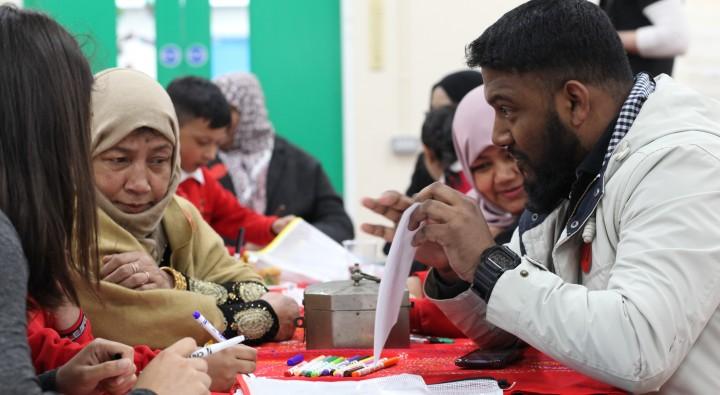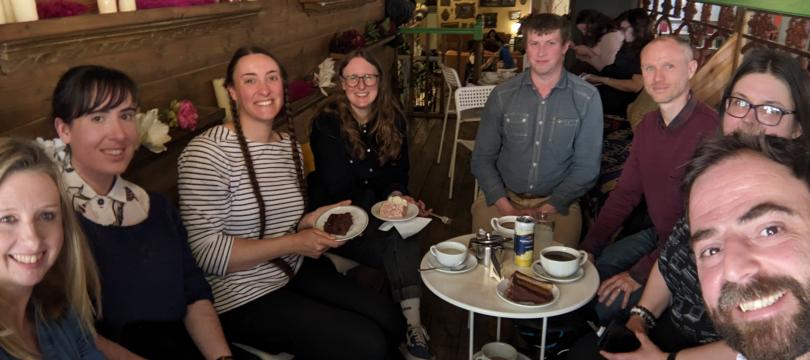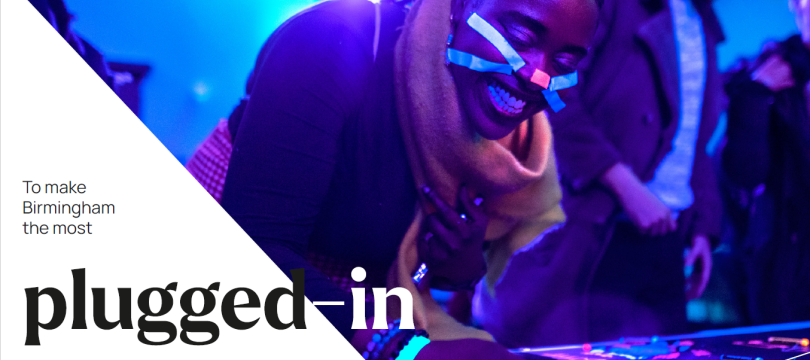The role of place in engagement
As more universities look to become civic partners within their local communities, the Centre for Public Engagement team at Queen Mary University London is exploring the future role of place within their approach to public engagement.
As more universities look to become civic partners within their local communities, the Centre for Public Engagement team at Queen Mary University London is exploring the future role of place within their approach to public engagement.

Who would you like to work with, and what are you hoping to achieve? Two questions many public engagement professionals ask as they advise staff and students within their universities.
At Queen Mary, we encourage people to engage with the audience most relevant to their research or teaching – wherever or whoever that may be. It could be exploring working practices in care and education with care-experienced young people, working with local residents and NGOs in Cape Verde to protect the local turtle population, or understanding how Covid19 has changed people’s relationships with their homes.
This means we have a really diverse range of public engagement happening across the world; but many of our staff and students naturally turn their attention to east London.
East London is Queen Mary’s home. Home to our campuses, to thousands of members of staff, and to even more students (both arriving in and coming from the local area). Despite this, we know that the university can be an intimidating place for many local people – somewhere they don’t feel they belong, or that isn’t for them. It’s our job to try and break down that ‘invisible wall’ surrounding the university, and the local relationships that our staff and students build is a critical part of that.
Stories from Home
Tower Hamlets in East London is home to one of the largest Bangladeshi communities in the UK. Stories from Home was set up to try and ensure that stories and heritage languages – a key part of cultural history and identity – were passed on to the next generation.
Stories from Home developed out of a partnership between Kathleen McCarthy, a Lecturer in Linguistics at Queen Mary interested in how bilingual children learn language, and Nurull Islam, co-founder of the Mile End Community Project: a youth and community organisation founded to nurture the creativity and potential of Mile End’s young people. They shared a passion for the changes they were seeing within east London’s Bangladeshi community.
I was spending lots of time with families, including children who lived with their grandparents. I noticed a clear decline in children’s use of their mother tongue, or heritage language, in families with second generation parents. Parents and grandparents were raising this concern with me, and noticing that there wasn’t enough support for mother tongue classes locally. Kathleen
I work in the local community and I was listening to the stories of the journeys first generation Muslim migrants made to this country. It became really apparent just how important it was to preserve these stories and make sure they were heard. The Bangladeshi people fought for their language – this year represents the 50th anniversary of their victory and independence. Yet the very language that was fought for was in decline, and I realised history would note that this happened in my generation. Nurull
Their team developed intergenerational storytelling workshops to enable children to communicate with their grandparents. Parents were involved, acting as interpreters if needed, and grandparents told their stories in their native language, Sylheti. Children retold the stories in English and illustrations, and the team captured the process on film. You can watch the short stories narrated in both Sylheti and English, accompanied by the children’s illustrations.
Find out more about where Kathleen and Nurull’s project went next, what they learnt along the way, and their top tips for building academic-community partnerships.
Moving beyond engagement with research
Universities have traditionally focused on supporting academics and students to engage the public in their research projects, like Kathleen and Nurull. But with Queen Mary’s focus on supporting people in east London stretching back to the 18th Century, we’re keen that building trust and relationships locally is something that everyone in the university feels a part of.
We want to explore local access to jobs and skills opportunities, or campus spaces; shared decision-making, and research and learning opportunities designed to address local issues; and how the university can support local government priorities.
As part of this, the Centre for Public Engagement team has been leading the development of Queen Mary’s Civic University Agreement over the past 18 months – working with The East London Citizens Organisation and the Institute of Community Studies to make sure the agreement is developed in partnership with our local area.
Find out more about the methods behind our Civic University Agreement.
Navigating engagement challenges together
As we get closer to a fully-fledged agreement, we’ll be honest: we’re grappling with some questions as a public engagement team.
How will public engagement teams across the sector manage any tensions between ‘public’ and ‘civic’ engagement in the future? Will our focus on east London affect engagement with global public audiences? Embedding a culture of public engagement across a university is a task enough – how will we manage this alongside embedding a stronger sense of civic responsibility? Is that our task to manage?
We know there are tensions to navigate, and we imagine we’re not the only team asking these types of questions. If this resonates with you, public engagement teams and otherwise, we’d love to hear from you. We want to have an open conversation about the experiences that have brought us to where we are now, and what might be next for the public engagement sector. Perhaps we could even explore some of these questions together at Engage 2021…
Dr Emily Burns is Director of the Centre for Public Engagement at Queen Mary University of London
The Engage Unconference Call for Contributions is now open - find out more here.

